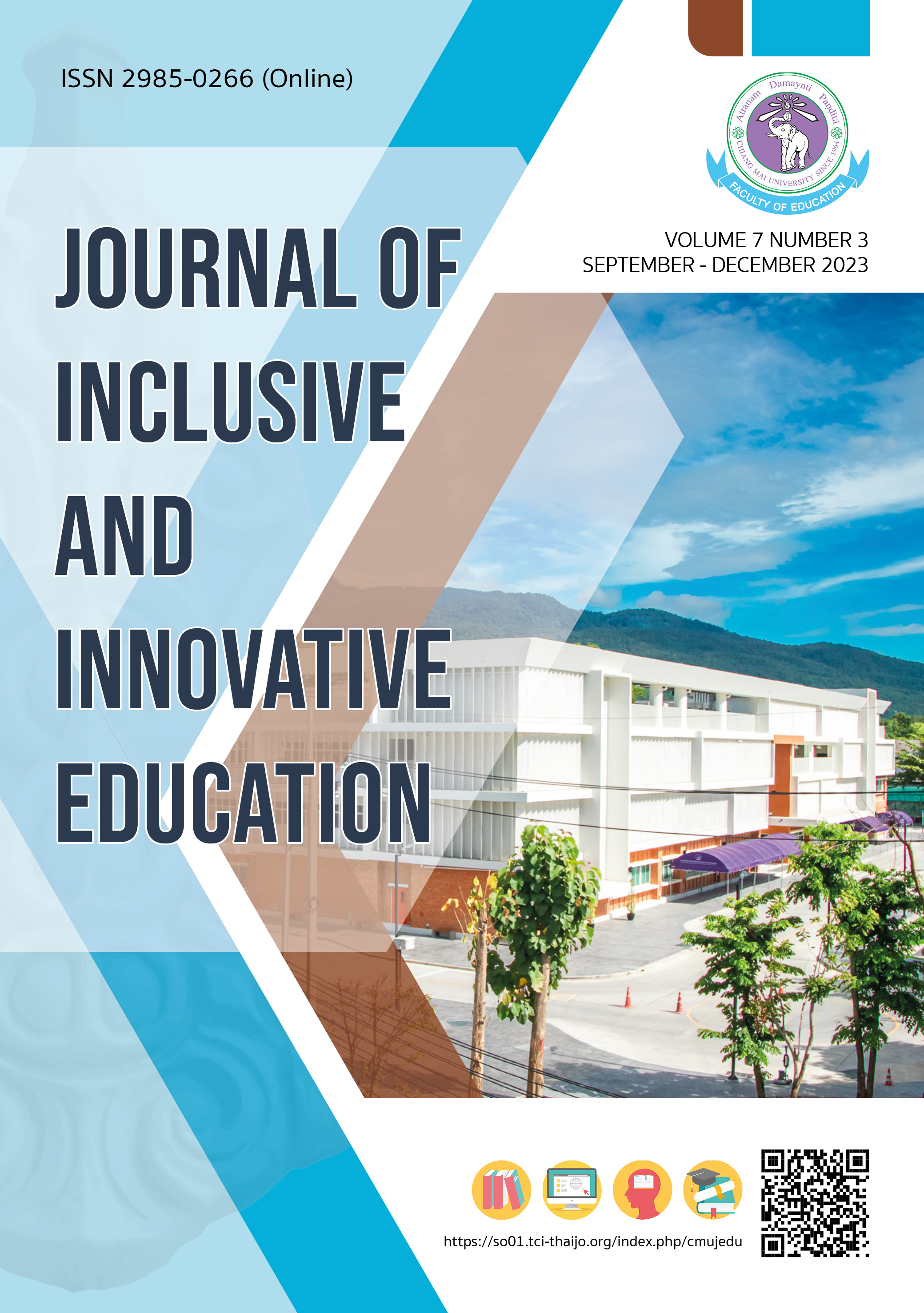การศึกษาปัจจัยและแนวทางการส่งเสริมความสามารถในการเรียนรู้แบบนำตนเองของนักเรียนระดับชั้นประถมศึกษาปีที่ 1 กรุงเทพมหานคร
Main Article Content
บทคัดย่อ
การวิจัยครั้งนี้มีวัตถุประสงค์เพื่อศึกษาปัจจัยที่ส่งเสริมความสามารถในการเรียนรู้แบบนำตนเองของนักเรียนระดับชั้นประถมศึกษาปีที่ 1 และเสนอแนวทางให้ผู้ที่มีส่วนเกี่ยวข้องในการจัดการศึกษาระดับชั้นประถมศึกษาปีที่ 1 ได้ส่งเสริมความสามารถในการเรียนรู้แบบนำตนเองของนักเรียนได้อย่างเหมาะสม ใช้ระเบียบวิธีวิจัยแบบผสมผสาน (Mixed Method Research) คือ ใช้การเก็บข้อมูลเชิงปริมาณและเชิงคุณภาพ โดยใช้แบบสอบถาม แบบสัมภาษณ์และแบบสังเกต ใช้วิธีการสุ่มตัวอย่างแบบง่าย (Simple Random Sampling) จำนวนทั้งสิ้น 92 คน จากจำนวนครูทั้งหมด 120 คน จากนั้นใช้วิธีการสุ่มแบบเจาะจง เพื่อดำเนินการสัมภาษณ์และสังเกตการจัดการเรียนการสอน โดยคัดเลือกจากโรงเรียนที่มีระดับการปฏิบัติการส่งเสริมความสามารถในการเรียนรู้แบบนำตนเองของนักเรียนสูงที่สุด วิเคราะห์ข้อมูลโดยใช้ค่าเฉลี่ย ร้อยละ และส่วนเบี่ยงเบนมาตรฐานและใช้การวิเคราะห์เนื้อหา (Content Analysis) แบบอุปนัย (Analytic Induction) ผลการวิจัยพบว่า ครูผู้สอนส่วนใหญ่มีการส่งเสริมความสามารถในการเรียนรู้แบบนำตนเองด้านเจตคติในการเรียนรู้มากที่สุด รองลงมาคือ ด้านสัมพันธภาพระหว่างนักเรียนกับครู ด้านบรรยากาศในการเรียนรู้ ด้านแรงจูงใจในการเรียนรู้ ด้านความพร้อมของแหล่งทรัพยากรการเรียนรู้ และด้านความพร้อมในการเรียนรู้ตามลำดับ
Article Details

อนุญาตภายใต้เงื่อนไข Creative Commons Attribution-NonCommercial-NoDerivatives 4.0 International License.
หากผู้เสนอบทความมีความจำเป็นเร่งด่วนในการตีพิมพ์โปรดส่งลงตีพิมพ์ในวารสารฉบับอื่นแทน โดยกองบรรณาธิการจะไม่รับบทความหากผู้เสนอบทความไม่ปฏิบัติตามเงื่อนไขและขั้นตอนที่กำหนดอย่างเคร่งครัด ข้อมูลของเนื้อหาในบทความถือเป็นลิขสิทธิ์ของ Journal of Inclusive and Innovative Education คณะศึกษาศาสตร์ มหาวิทยาลัยเชียงใหม่
เอกสารอ้างอิง
Anupap, K. (2017). Using self-directed learning to develop computer learning of 4th grade students
(Master of education thesis). Faculty of Education, Dhurakij Pundit University. [in Thai] Boontam, T. (2013). The academic affairs administration and the instructional efficiency of mathemetics
teachers in school shortage of mathematics teachers under Secondary Education Service Area
Office 9 (Master of education thesis). Faculty of Education, Silpakorn University. [in Thai] Brockett, R.G., & Hiemstra, R. (1991). Self-Direction in Adult learning: Perspective on Theory, research and practice. Creative Education, 7.
Charoenchim, S., & et al. (2012). Development of a teaching model that promotes concepts and problem solving in physics. Silpakorn Educational Research Journal, 1, 64-78. [in Thai]
Chuaypan, P., Saripa, A., & Buddee, S. (2017). The effect of 5 steps learning process on scientific process skills and scientific creativity in science learning area of grade nine students - Thai version.
Journal of Education Thaksin University, 17, 163-173. [in Thai]
Doris, C., & Yin, L. (2022). Comparison of primary four students’ perceptions towards self‑directed learning and collaborative learning with technology in their English writing lessons. Journal of Computers in Education, 9, 783-806.
Gulten, F., & Kiymet, S. (2016). Developing a "Self-directed Learning Preparation Skills Scale for Primary School Students": Validity and Reliability Analyses. Universal Journal of Educational Research, 4, 217-2334.
Hiemstra, R. (1994). Self-directed learning. In T. Husen and T. N. Postlethwaite. The International Encyclopedia of Education (Second edition). Oxford: Pergamon Press.
Ilkay, A., & Melek, D. (2018). An Investigation of Self-Directed Learning Skills of Undergraduate Students. Original Research Article, 9, 1-14.
Khaemmanee, T. (2012). Teaching science: knowledge for organizing an effective learning process. Bangkok: Chulalongkorn University Printing House.
Khowtrakul, S. (2005) Educational Psychology (Edition 4th). Bangkok: Chulalongkorn University Printing House.
Klahan, P. (2016). A study of the relationship between leadership and change of management
Educational institutions and the teaching efficiency of teachers under the Office of the Primary Educational (Master of Education Thesis). Faculty of Education, Rajabhat Nakhon Ratchasima University. [in Thai]
Krejcie, R., & Morgan, D. (1970). Determining Sample Size for Research Activities. Educational and Psychological Measurement, 30(3), 607-610.
Ngamlod, S. (2014). Effects of organizing art sculpture activities on the logical thinking skills of early childhood children (Master of Early Childhood Education thesis). Faculty of Education, Srinakharinwirot University. [in Thai]
Penny, V. (2004). Gifted Primary Students’ Knowledge of Self-Directed Learning. International Education Journal, 4, 64-74.
Penny, V. (2005). The inquiry nature of primary schools and students’ self-directed learning knowledge. International Education Journal, 5, 166-177.
Penny, V. (2011). Views of Gifted Elementary Students about Self-Directed Learning. Gifted and Talented International, 26, 111-119.
Pornsima, D. (2011). Teacher development abilities. N.P.
Rattanamaneechote, S. (1993). Knowledge and attitude of nurses towards organ donation(Master of Medicine Thesis). Faculty of Medicine, Mahidol University. [in Thai]
Siritharangsri, P. (2014). Proposal for upgrading the quality of Thai teachers in the 21st century. Journal of Research for Social and Community Development Maha Sarakham Rajabhat University, 1. [in Thai]
Sriphongperit, M. (2018). Factors affecting the efficiency of learning management in the 21st century of primary teachers in Pathum Thani Province (Master of education thesis). Faculty of Education,
Rajamangala University of Technology Thanyaburi. [in Thai]
Suanchuphon, A. (2015). Self-directed learning characteristics of university students Valaya Alongkorn Rajabhat under the Royal Patronage. Jounal of Graduate Studies Valaya Alongkorn Rajabhat, 9, 221-231. [in Thai]
Suwansuk, P. (1995). Organizing science experiences for early childhood children. Teaching documents for the course on enhancing life experiences Early childhood education level. (8). Nonthaburi: Sukhothai Thammathirat Open University. [in Thai]
Timothy et al., (2010). The self-directed learning with technology scale (SDLTS) for young students:
An initial development and validation. Computers & Education, 55, 1764-1771.
Tough, A. (1979). The Adult’s Learning Projects: A Fresh Approach to Theory and Practice in Adult Learning
(2nd ed.). Creative Education, 12, 1-12.
Uthaisuk, P. (1999). Teaching and learning system. Bangkok: Sukhothai Thammathirat Open University.
Wattananamkul, W. (2002). Why and how with Self-Directed Learning. Retrieved from http://secondary.kku.ac.th/sec4/sdl.htm
Wiedmer, T. (2015). Generations Do Differ: Best Practices in Leading Traditionalists, Boomers, and Generations X, Y, and Z. Creative Education, 82, 51-58.


